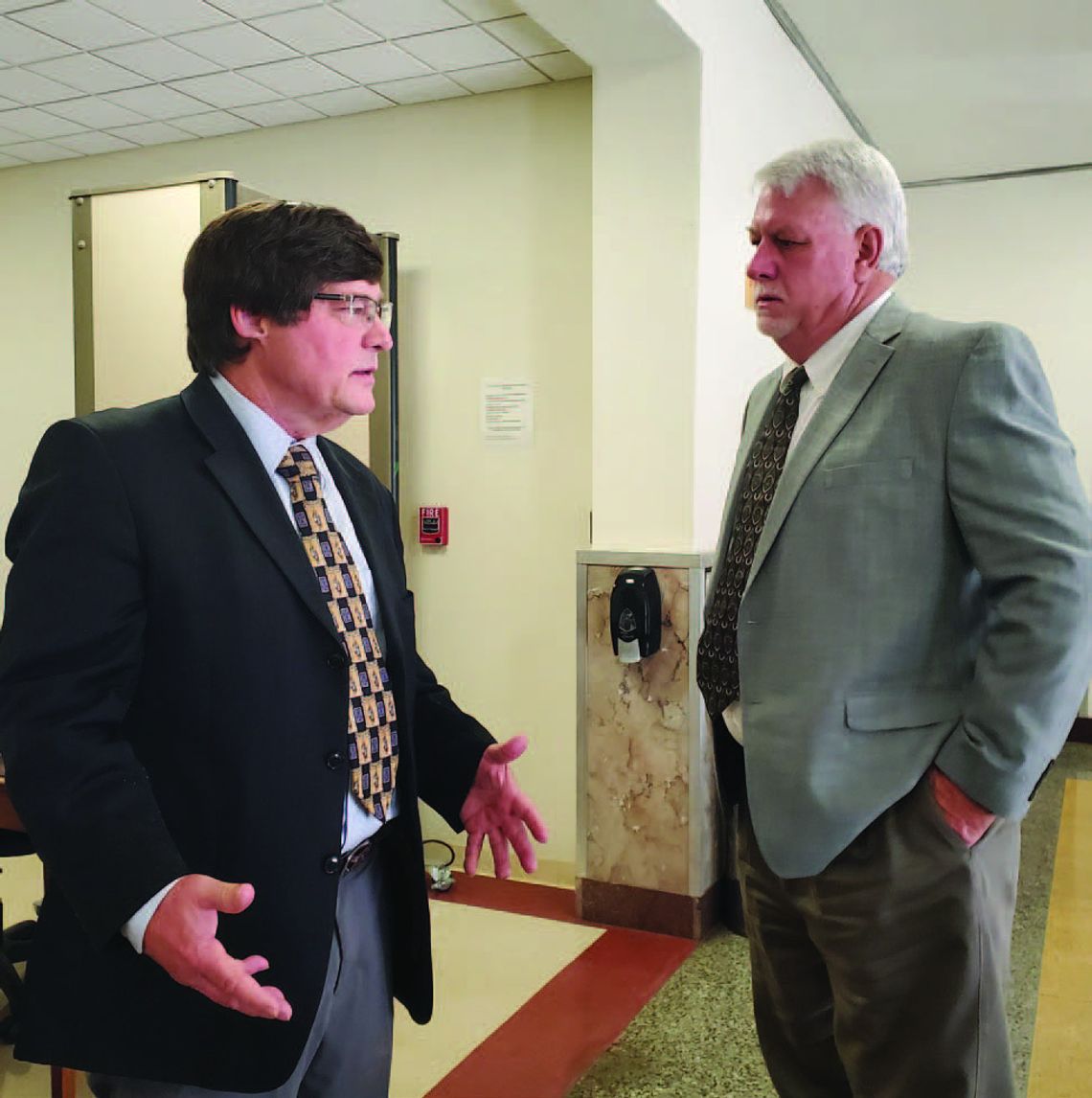Editor's Note: This article update reflects the addition of the full name and title of the Burnet veterinarian Dr. Dan McBride. We regret the omission.
A former Burnet County commissioner will need to check in with a probation officer, take random drug tests and avoid any criminal activity after receiving a guilty verdict on livestock cruelty charges.
Billy Wall was convicted by a jury of six people (three men and three women) on Nov. 14 at the Burnet County Courthouse. He received a deferred two-year sentence.
The trial occurred Monday, Nov. 10 when the jury was seated through Friday, Nov. 14.
Jurors heard testimony by former Burnet County livestock deputy Jason Jewett; retired Texas A&M professor Joe Paschal, a cattle and beef expert; fellow livestock ranchers and neighbors and a Williamson County deputy who assisted in a seizure of Wall’s cattle.
Defense Attorney Kurt Corley told jurors that Wall’s health issue at the time and the drought took their toll on his ability to care for the cattle in 2022.
He also questioned the motives of authorities, accusing them of killing half a dozen cows in the period of several days it took to seize the animals.
“They killed six of them,” Corley said. “One calf they separated from his mother. The mother had udders full of milk. They killed her.
“They’re prosecuting him (Wall) for his cruelty to the cows,” he added, alleging the Burnet County Sheriff’s Office was guilty of “gross abuse of the process.”
“You can’t believe anything they’re telling you,” Corley added. “He’s being punished for the drought … He would have brought them back around.”
Corley continued, “Due process is better than that. Beyond a reasonable doubt is better than that.”
Presiding over the case was retired Williamson County Judge Kevin Henderson.
Madison Hardee of the Williamson County Attorney’s office conducted the closing arguments for the prosecution.
“The defendant is trying to blame everyone else – law enforcement, the cowboys, his stepdaughter,” she said.
Wall, who testified on his own behalf, detailed how he suffered from health issues and relied on family to assist him with the care of the livestock.
Dr. Dan McBride, the veterinarian, testified about the lack of vaccinations, fecal samples and general care associated with the livestock.
The defense pointed to the fact that officers and two dozen hired cowboys took four days to round up the cattle. Six of them died.
“They sold them all in November (a month after the seizure),” Corley said. “We (the defense team) didn’t even get a chance to evaluate them.”
Wall still owes $20,000 of the approximately $45,000 settlement with the county to reimburse for the transport, feed and veterinarian care of the animals, the difference from the sale of the livestock.
Wall was accused of making a living selling hay at $200 per bale while not properly feeding the cattle on his property he inherited from his father.
Corley maintained the BCSO was targeting Wall, calling their actions a “gross abuse of the process.” “That’s what he does for a living. They took away his livelihood. He has to start from scratch,” Corley said.
During closing arguments, prosecutors contended that the cattle were in such bad shape, the simple act of transporting them caused the problem.
“Normal stress does not kill animals,” Hardee told the jury. She described them as “walking skeletons.”
“We had to save those cattle from his care because they only got worse,” she added. “What Jewett was looking for was progress.”
Jewett said that he warned a handful of livestock ranchers that year about the condition of their cattle. All, except for Wall, either improved the conditions over time or sold them off.
Hardee continued: “Two of our experts (Mc-Bride and retired Texas A&M professor Dr. Joe Paschal) told you these animal were emaciated.”
She also held up photos of some of the cattle, adding that law enforcement who rounded them up found most of the herd “sick, emaciated, dying, injured.”
At the time, the cattle were transferred to the Burnet County Fairgrounds and cared for McBride.
Eventually, Wall agreed to surrender the remaining 79 head of cattle to the Jordan Cattle Auction in San Saba County to assist the county in recouping the cost.
Officials said they fetched a net gain of $45,081.84 compared to the $63,233 needed to cover the cost of housing, feeding and veterinarian bills accumulated over time by the county.
Wall had faced eight misdemeanor counts of cruelty to livestock animals, class A misdemeanors and fines of up to $4,000 and as much as a year in county jail on each count.
Wall’s livestock were located on approximately 500 acres in the 6000 block of W. FM 243, just outside Bertram on property intersecting CR 336 and CR 337.
“By letting him go, we’re telling the community this is okay. This is not okay,” Hardee told the jury. “He (Wall) has the same burden as everyone else.” Wall was a Burnet County commissioner at the time he turned himself in on warrants. He did not seek another term.
Probation terms included registering with the Burnet County Adult Probation Office, avoiding any criminal charges including theft, DWI, harassment and assaults. Should he be accused of livestock cruelty again, the charge could be increased to a state jail felony.
Wall also agreed to a limited number of livestock he can have on his property.









